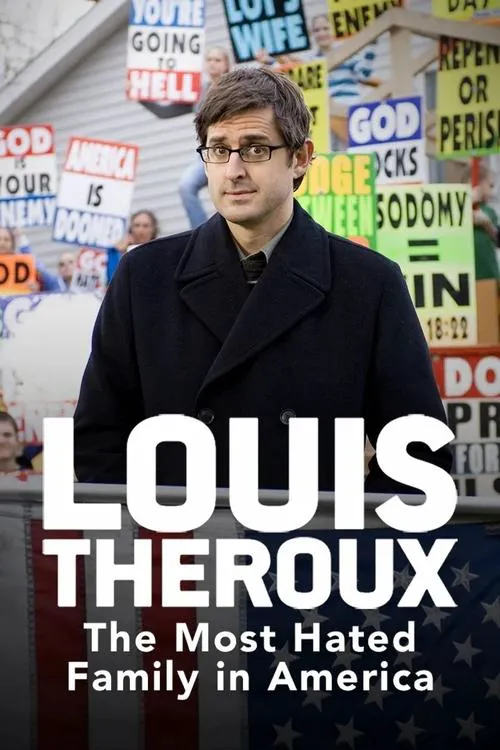Louis Theroux: The Most Hated Family in America

พล็อต
Deep within the heart of the American Midwest lies a small town in Kansas called Topeka. It's a place that may seem ordinary to outsiders, but for those who dare to scratch beneath its seemingly tranquil surface, they will find a cauldron of radicalism and fanaticism brewing in the form of the Westboro Baptist Church. The church, founded by Pastor Fred Phelps, has garnered international notoriety for its brazen and inflammatory anti-homosexual rhetoric, often accompanied by the unfurled signs that spell out "God Hates Fags." It was amidst this whirlwind of controversy that documentary filmmaker Louis Theroux arrived in Topeka, armed with nothing but his camera crew and a deep sense of curiosity to uncover the enigmatic Westboro Baptist Church and its family. Upon his arrival, Louis Theroux embarked on an extended stay within the Phelps household, immersing himself in the peculiar world of this family and their fanatical congregation. As he delved deeper into their daily lives, he encountered some of the church's most prominent members, each of whom seemed to embody the unyielding fervor and intolerance that defined the organization. There was Shirley Phelps-Roper, the fiery minister's daughter and a zealous advocate for the church's extremist views; Margie Phelps, the church's lead attorney and an unyielding defender of Fred's twisted theology; and Rebekah Phelps-Roper, the Phelps' youngest daughter and the church's self-proclaimed "most beautiful girl," whose unapologetic hatred for the world's LGBTQ+ community serves as a grim reminder of the corrosive influence of Fred's toxic ideology. Through his interactions with these individuals, Theroux came to understand the driving forces behind the Westboro Baptist Church's existence. He saw how their twisted interpretation of the Bible fueled their actions, convincing them that every disaster – be it a plane crash, a school shooting, or the tragic loss of a soldier – was nothing short of divine retribution for the perceived affront against God presented by the LGBTQ+ community. This warped perception of the world leads them to their infamous funeral protests, where they loudly proclaim that the fallen soldier has suffered an untimely demise as a direct result of God's righteous indignation. As Theroux observes the insular world of the Phelps family, he begins to discern a disturbing correlation between their fanatical ideology and a deeper-seated pathology. He notices how their fervor is not simply a product of their twisted theology but also a manifestation of the unresolved traumas that have haunted their family for generations. He learns about the church's history of litigious aggression, its penchant for intimidation, and the unyielding grip of its patriarchal figure – Fred W. Phelps Sr. – who has carefully cultivated an atmosphere of fear and loyalty within his congregation. One of the most striking aspects of Theroux's encounter with the Phelps family is the way in which their rhetoric mirrors the very behavior they rail against. They denounce the LGBTQ+ community's so-called "sinfulness" yet simultaneously engage in behavior that is both morally reprehensible and flagrantly hypocritical. Their funeral protests, a staple of their crusade, can only be described as an affront to the very notion of compassion and empathy, a sentiment starkly at odds with the principles of Christianity they claim to uphold. As Theroux becomes more deeply entrenched in the world of the Phelps family, he begins to question whether the lines between zealotry and fanaticism truly exist. Are these individuals delusional or are they, as they seem to genuinely believe, merely interpreting the will of God? Is it possible to reconcile the fervor they exhibit for their cause with the inherent cruelty and divisiveness it inspires? Ultimately, Theroux's documentary serves as a cautionary tale, exposing the insidious consequences of radical ideology and the dangers that arise when individuals surrender their moral agency to an entrenched, twisted worldview. As the camera pans out, showing the isolated, seemingly quaint neighborhood where the Phelps family resides, it is difficult not to feel a creeping sense of unease. It is a world where logic and empathy are supplanted by a rigid dogma, a world that threatens to implode under the weight of its own toxic ideologies.
วิจารณ์
คำแนะนำ




